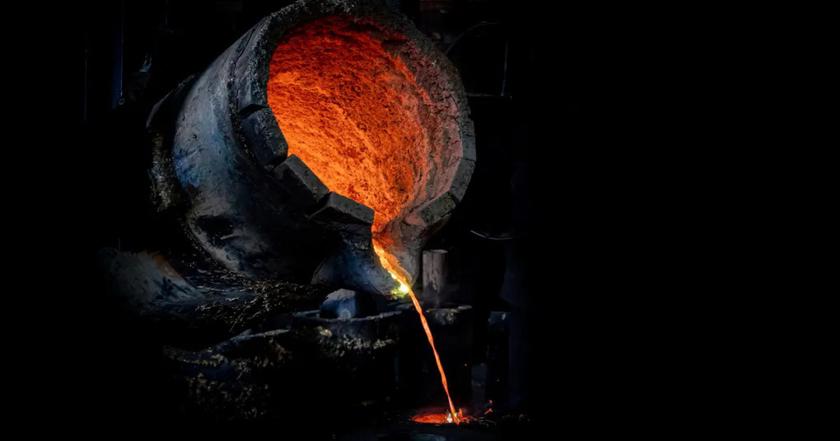
MIT scientists discover a method of steel production using electricity
Steel production is an important part of global industry, but its traditional process is highly polluting. Approximately 7-9% of greenhouse gas emissions come from the steel industry. In response to this problem, former scientists Massachusetts Institute of Technology (MIT) founded the company Boston Metal, which offers a new way of producing steel based on electrochemical processes.
A new method of steel production
MIT scientists, using the institute’s research, have developed a technology that abandons the traditional blast furnace method that uses coal. Instead, Boston Metal uses an electrochemical process that significantly reduces the number of steps in steel production.

The key advantage of the new electric arc furnace process is that only oxygen is a by-product. This means a significant reduction in greenhouse gas emissions. In addition, the process can be scaled up to a commercial level, which gives hope for a significant impact on the fight against climate change.
Technological details
The developed method uses modular molten oxide electrolysis cells. The process is based on a special inert iron anode that does not dissolve when immersed in a liquid electrolyte. An electric current is passed through this anode, which breaks down the bonds of iron oxide in the ore, turning it into pure liquid metal.
Implementation and prospects
Although researchers have been looking for a way to use an electrochemical process to speed up steel production for years, it is only now that the technology has been scaled up to a commercial level. The technology is expected to reach commercial scale in 2026, although a plant in Brazil is already using the MOE (Molten Oxide Electrolysis) process.
Conclusion
An innovative method of producing steel using electricity, developed by MIT scientists and implemented by Boston Metal, has the potential to significantly reduce greenhouse gas emissions in the steel industry. This could be an important step in the fight against climate change, providing a cleaner and more efficient way to produce one of the key materials in global industry.

